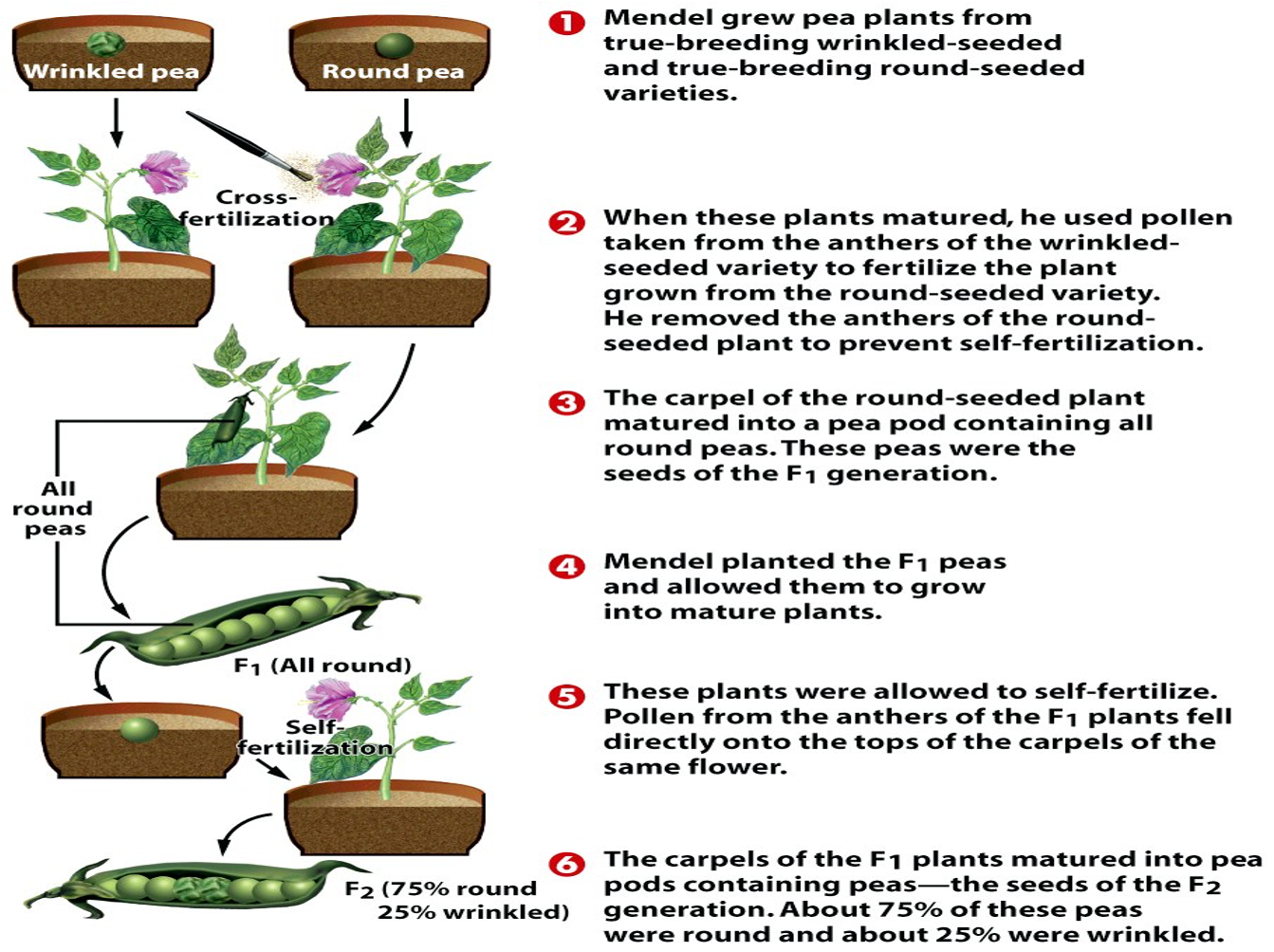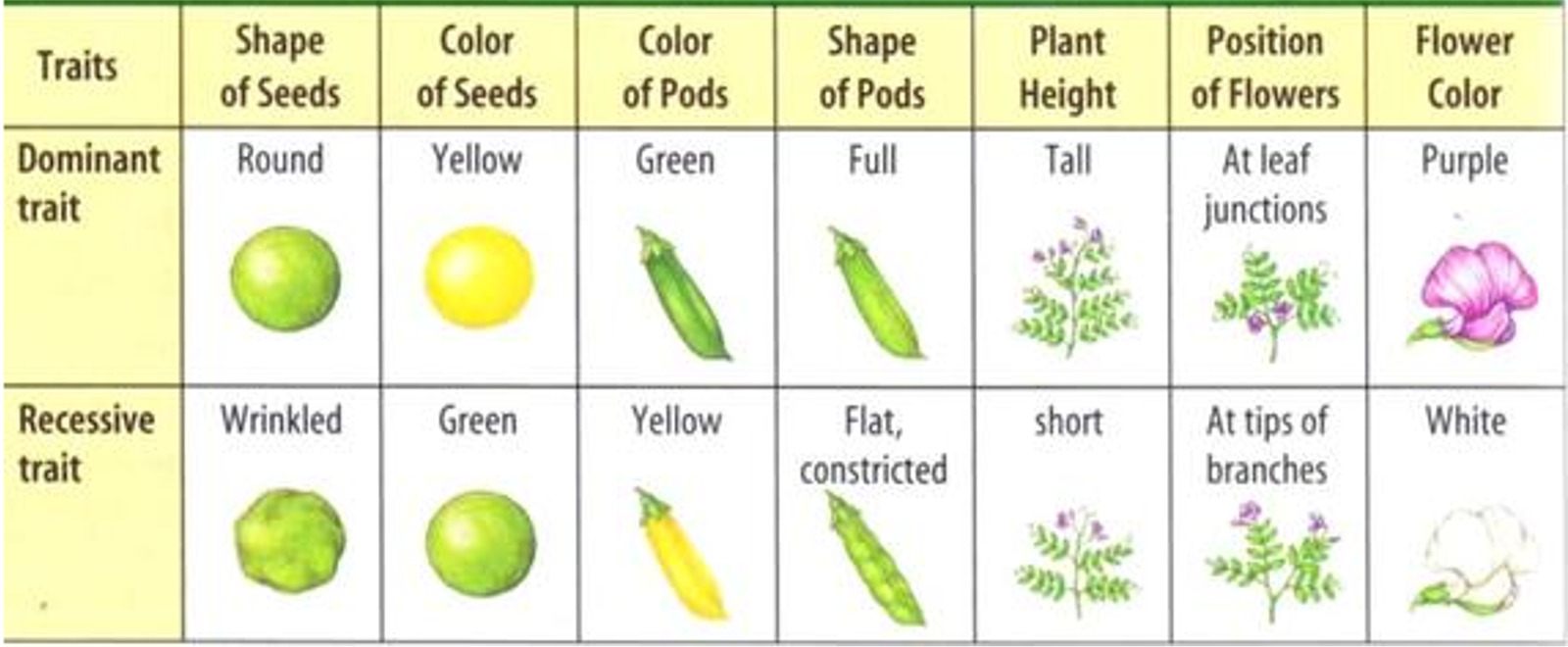
Mendel and the Laws of Heredity (Part 1)
Gregor Johann Mendel - July 20, 1822 - January 6, 1884
Born in a German speaking family in the Silesian part of the Austrian Empire and gained posthumous recognition as the Founder of the Modern Science of Genetics.
Austrian Monk at the Monastery of St Thomas in Czech Republic.
High School teacher of Physics and Natural History.
Spent most of his time conducting Biological Experiments.
Famous on his experiments on Crosses of Garden Peas (Pisum sativum) from 1856-1863
Before Mendel ( Early beliefs about Heredity)
Charles Robert Darwin (1809-1882): English naturalist Darwin introduced the Theory of Natural Selection.
He expressed his findings and ideas in his famous research publication, "Origin of Species by Means of Natural Selection" in the year 1859, after observing the living communities of Galapagos Islands.
Charles Darwin thought that the traits from parents were transmitted to their offspring by BLOOD, thus came the blood theory of heredity. This theory gives rise to the expressions “bloodline” “blue blood” and “blood relative”.
Early concepts about transmission of traits are now considered inaccurate as we now know that both parents contribute hereditary traits to their offspring and that these traits are not contained in blood but in sex cells.
Intro to Genetics
GENETICS – branch of biology that deals with heredity and variation of organisms.
Chromosomes carry the hereditary information (genes)
Arrangement of nucleotides in DNA
DNA > RNA > Proteins
Chromosomes (and genes) occur in pairs Homologous Chromosomes
New combinations of genes occur in sexual reproduction Fertilization from two parents
Mendel’s Experiment (why Garden Peas)
Garden Peas have several varieties that have observable, contrasting characteristics
Garden Peas reproduce by self-pollination (they reproduce by themselves)

Seven Contrasting Traits in Garden Peas observed by Mendel.
Mendel’s Experiment Findings…
Published these findings in its Scientific journal in 1866 after he reported it to a local natural history society.
His work was not appreciated until 3 scientists rediscovered his work at around 1900 Hugo de Vries, Karl Correns and Erich von Tschermak
His achievement was only recognized after the turn of the century, many years after his death
Mendel and the Laws of Heredity (Part 1)
Gregor Johann Mendel - July 20, 1822 - January 6, 1884
Born in a German speaking family in the Silesian part of the Austrian Empire and gained posthumous recognition as the Founder of the Modern Science of Genetics.
Austrian Monk at the Monastery of St Thomas in Czech Republic.
High School teacher of Physics and Natural History.
Spent most of his time conducting Biological Experiments.
Famous on his experiments on Crosses of Garden Peas (Pisum sativum) from 1856-1863
Before Mendel ( Early beliefs about Heredity)
Charles Robert Darwin (1809-1882): English naturalist Darwin introduced the Theory of Natural Selection.
He expressed his findings and ideas in his famous research publication, "Origin of Species by Means of Natural Selection" in the year 1859, after observing the living communities of Galapagos Islands.
Charles Darwin thought that the traits from parents were transmitted to their offspring by BLOOD, thus came the blood theory of heredity. This theory gives rise to the expressions “bloodline” “blue blood” and “blood relative”.
Early concepts about transmission of traits are now considered inaccurate as we now know that both parents contribute hereditary traits to their offspring and that these traits are not contained in blood but in sex cells.
Intro to Genetics
GENETICS – branch of biology that deals with heredity and variation of organisms.
Chromosomes carry the hereditary information (genes)
Arrangement of nucleotides in DNA
DNA > RNA > Proteins
Chromosomes (and genes) occur in pairs Homologous Chromosomes
New combinations of genes occur in sexual reproduction Fertilization from two parents
Mendel’s Experiment (why Garden Peas)
Garden Peas have several varieties that have observable, contrasting characteristics
Garden Peas reproduce by self-pollination (they reproduce by themselves)

Seven Contrasting Traits in Garden Peas observed by Mendel.
Mendel’s Experiment Findings…
Published these findings in its Scientific journal in 1866 after he reported it to a local natural history society.
His work was not appreciated until 3 scientists rediscovered his work at around 1900 Hugo de Vries, Karl Correns and Erich von Tschermak
His achievement was only recognized after the turn of the century, many years after his death
 Knowt
Knowt

